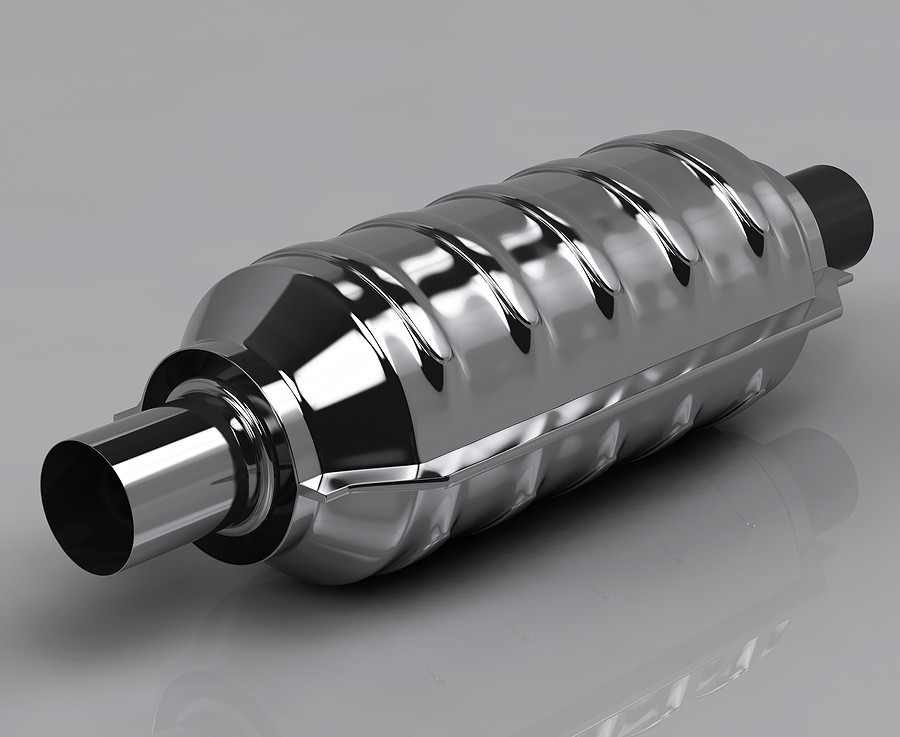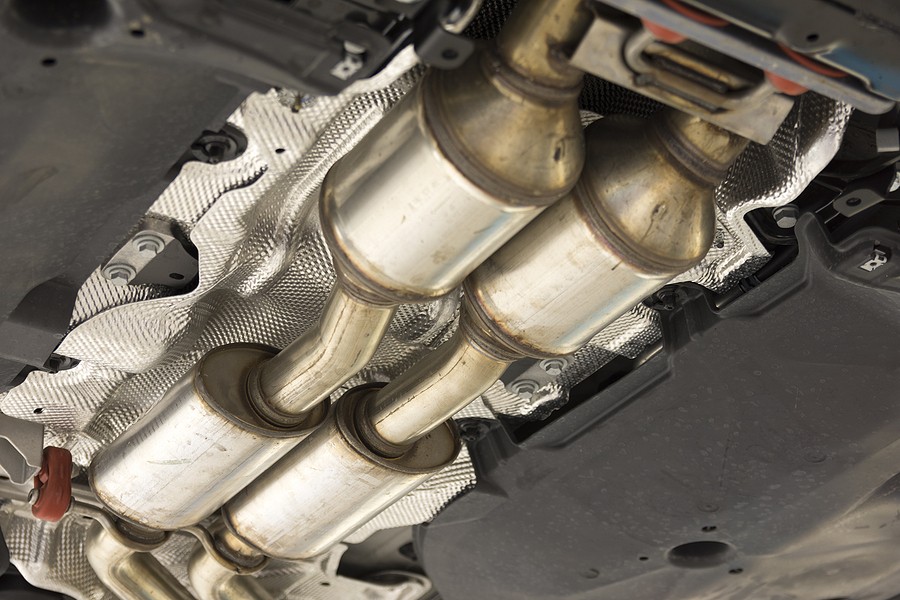A catalytic converter is an important part of a vehicle's exhaust system. It is a device that is designed to convert harmful pollutants in the exhaust fumes into less harmful substances before they are released into the atmosphere. In this article, we will explore what a catalytic converter does, how it works, and why it is important for the environment and for the performance of your vehicle.
What Does a Catalytic Converter Do?

A catalytic converter is a device that is designed to reduce the amount of harmful pollutants in a vehicle's exhaust fumes. It does this by converting the pollutants into less harmful substances using a chemical reaction. The main pollutants that a catalytic converter targets are carbon monoxide (CO), hydrocarbons (HC), and nitrogen oxides (NOx).
Carbon monoxide is a colorless, odorless gas that is produced when fossil fuels are burned. It is toxic to humans and animals, and can cause serious health problems if inhaled in large amounts. Hydrocarbons are also produced when fossil fuels are burned, and they contribute to the formation of smog. Nitrogen oxides are produced when the air and fuel mixture in the engine is not properly balanced, and they can contribute to the formation of ground-level ozone, which is a harmful air pollutant.
The catalytic converter works by using a chemical catalyst, which is a substance that speeds up a chemical reaction without being consumed in the process. The catalyst in a catalytic converter is usually a mixture of platinum, palladium, and rhodium. These metals are highly effective at catalyzing the chemical reactions that convert the harmful pollutants in the exhaust fumes into less harmful substances.
How Does a Catalytic Converter Work?
A catalytic converter consists of a ceramic or metal honeycomb structure that is coated with the catalyst. The exhaust fumes pass through the honeycomb structure as they are released from the engine, and the catalyst reacts with the pollutants in the fumes to convert them into less harmful substances.
The process of converting the pollutants in the exhaust fumes is called “catalytic reduction.” The catalytic converter uses a chemical reaction to break down the harmful pollutants into simpler, less harmful substances. For example, carbon monoxide is converted into carbon dioxide, hydrocarbons are converted into water and carbon dioxide, and nitrogen oxides are converted into nitrogen and oxygen.
The chemical reactions that take place in the catalytic converter are exothermic, which means that they release heat. This heat helps to further break down the pollutants in the exhaust fumes and make the catalytic reduction process more efficient.
Why is a Catalytic Converter Important?
A catalytic converter is an important part of a vehicle's exhaust system because it helps to reduce the amount of harmful pollutants that are released into the atmosphere. This is important for the environment and for public health, as the pollutants that are released from vehicle exhaust fumes can have negative impacts on air quality and human health.
In addition to helping to reduce the amount of harmful pollutants in the atmosphere, a catalytic converter is also important for the performance of your vehicle. A malfunctioning catalytic converter can cause a variety of problems, such as decreased fuel efficiency, reduced power and acceleration, and increased emissions.
When a catalytic converter is not functioning properly, it can also cause the “check engine” light to come on in your vehicle. This is because the catalytic converter is an important part of the vehicle's emission control system, and a malfunctioning catalytic converter can cause the vehicle to emit more pollutants than it is supposed to.
If you suspect that your catalytic converter is not functioning properly, it is important to have it checked out by a mechanic.
There are different types of catalytic converters that are used in vehicles. The type of catalytic converter that is used depends on the type of vehicle and the emissions standards that it needs to meet.
One type of catalytic converter is a monolithic converter, which consists of a single ceramic or metal honeycomb structure that is coated with the catalyst. This type of catalytic converter is commonly used in passenger cars and light trucks.
Another type of catalytic converter is a metallic substrate converter, which uses a metallic substrate instead of a ceramic or metal honeycomb structure. This type of catalytic converter is commonly used in heavy-duty vehicles, such as buses and trucks, because it is more durable and can withstand the higher temperatures and flow rates of the exhaust fumes.
A third type of catalytic converter is a diesel particulate filter (DPF), which is specifically designed to remove soot particles (also known as particulate matter) from the exhaust fumes of diesel engines. DPFs are commonly used in diesel vehicles, such as trucks and buses, to help reduce the amount of particulate matter that is released into the atmosphere.
It is important to note that a catalytic converter is a wear item, which means that it will eventually need to be replaced. The lifespan of a catalytic converter depends on several factors, including the type of vehicle, the driving conditions, and the quality of the fuel that is used. In general, catalytic converters are designed to last for the lifetime of the vehicle, but it is not uncommon for them to need to be replaced after several years of use.
If you need to replace your catalytic converter, it is important to use a high-quality replacement that meets the emissions standards for your vehicle. Using a low-quality catalytic converter can result in decreased performance and increased emissions, and it may not last as long as a high-quality converter.
In summary, a catalytic converter is an important part of a vehicle's exhaust system that helps to reduce the amount of harmful pollutants in the exhaust fumes. It works by using a chemical catalyst to convert the pollutants into less harmful substances, and it is important for the environment and the performance of your vehicle. If you suspect that your catalytic converter is not functioning properly, it is important to have it checked out by a mechanic to ensure that it is working properly and to avoid potential problems with your vehicle's performance and emissions.



